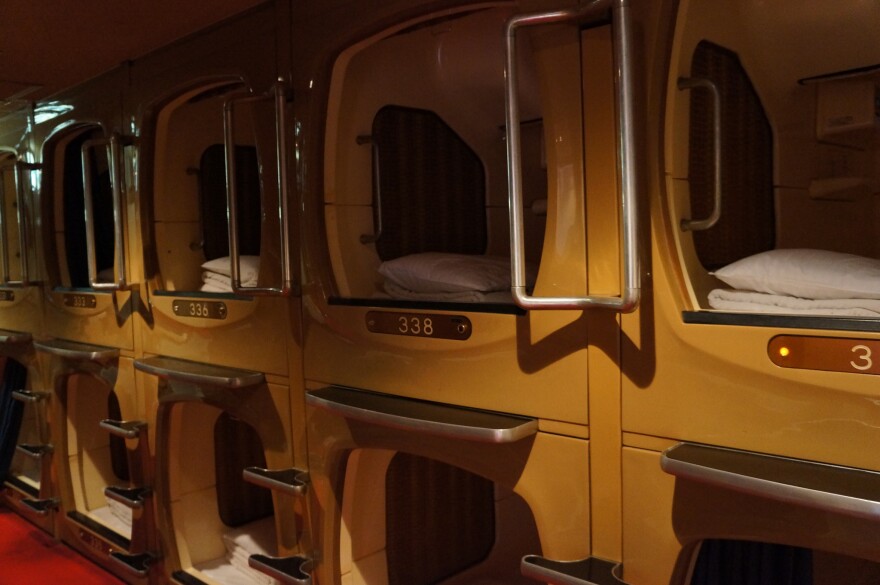As Seattle grapples with a growing homeless population, some inventors have come up with a novel solution – sleeping pods.
On a recent day at SoDo Makerspace near Safeco Field, 3D printers and laser cutters whirred and buzzed as people used them to make their own creations, everything from a new cell phone case to custom-designed guitar picks.
In the wood and metal shop, a man named Michael Momany has been hard at work building a sleeping pod he calls ZZZspace.
Momany said he’s spent a lot of time thinking about people who live on the street. A few years ago he drew some criticism for trying to organize a tour for people to understand homelessness close up.
He said that was misunderstood and now, he’s trying to come up with a better place for them to sleep.
"It’s modeled after Japanese pod hotels," Momany said. Those are the teeny-tiny capsule hotels that have been used by Japanese salarymen for decades.

A Private Place To Sleep
Momany's sleeping pod will consist of a steel tube shell, lined with insulation and covered in vinyl on the inside to make for easy cleaning. It will have a window at one end and a door on the other, and a canvas cot inside. Momany said the pod would keep you dry and give you somewhere to sleep all by yourself.
"It’s going to be a great private space for people who never have privacy," he said.
Momany said the pods could be stacked on metal shelving and put on a trailer.
Eric Renn, founder of SoDo Makerspace, said that means they could be set up in lots of places, for example, at the Port of Seattle.
"Any area like Harbor Island that is being debated, Terminal 5, any of those unused spaces, why not allow them to use that space to have a place to sleep at night?" Renn said.
Momany’s trying to raise about $3,000 to finish the prototype.
"Once we have it done, we’ll take it out and go into a group of homeless people and say, `Hey, what do you think? Jump in,'" he said.
He said he imagines churches or government agencies buying the sleeping pods, which would cost about $6,000 each. He said they may also be attractive as sleeping spots for workers at construction sites or remote mining camps.








